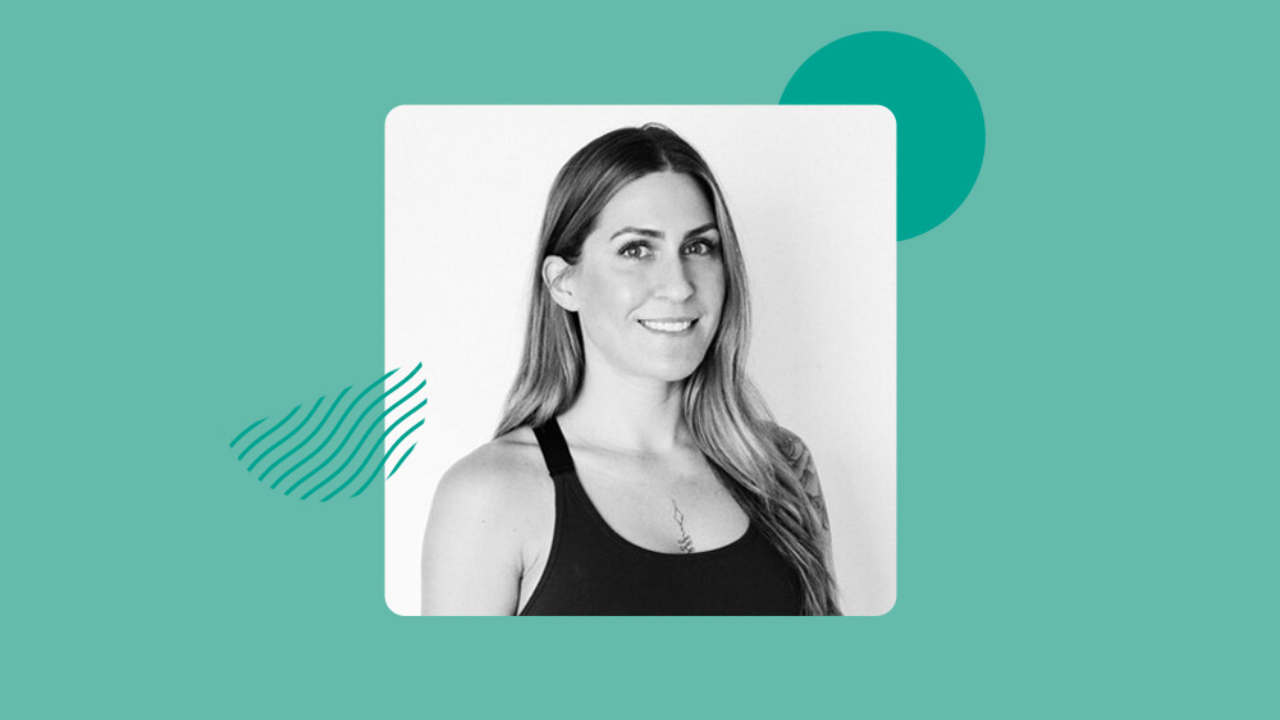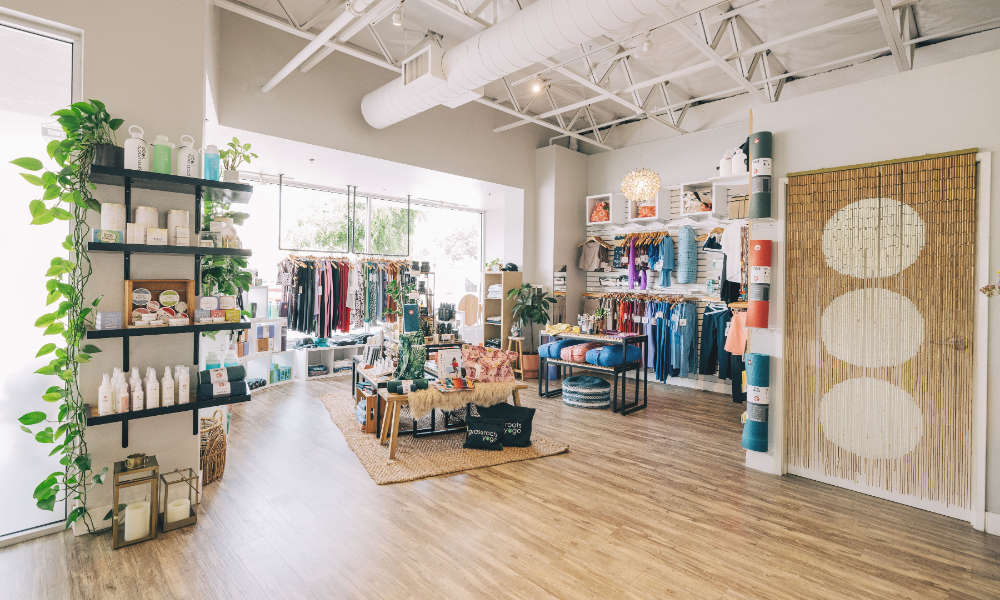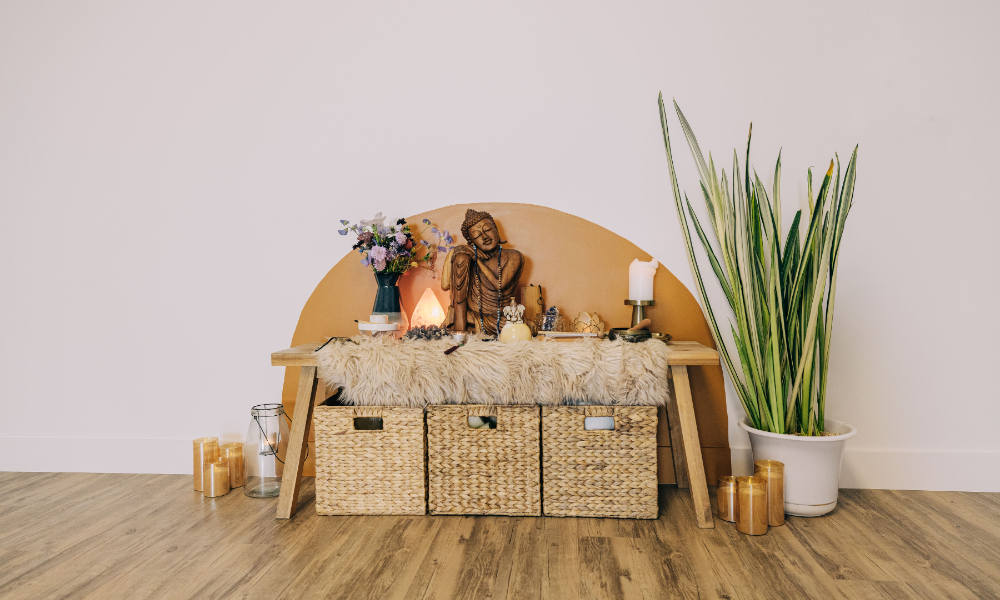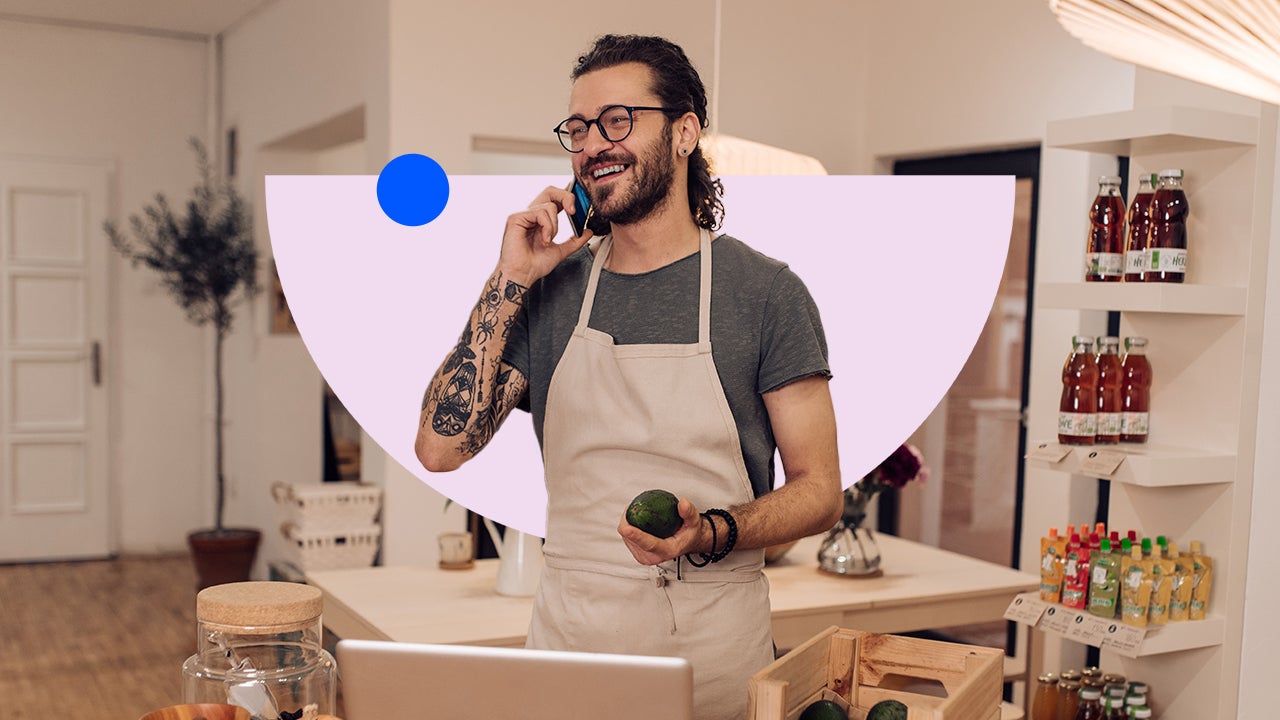How Sarah Ingram scaled Grassroots Yoga to serious success — and still gives back

In 2018, a new yoga studio opened its doors in Midtown Ventura, California. Sarah Ingram, the founder of Grassroots Yoga, found near-overnight success. Her quickly booming business can be attributed to a few things: her deep connection with her community, her carefully developed business plan and her commitment to giving back.
In the last year, Ingram had her second child and expanded the studio, doubling the practice space for Grassroots’s students. We sat down with her to talk about finding work-life balance, using an SBA loan for her recent expansion and what motivates her to make it all happen.
Why did you decide to start Grassroots Yoga?
I didn’t plan on opening it. I worked at a different yoga studio, but we parted ways, and I didn’t have a job. I tried to go back to corporate, and they didn’t have any openings, so I was encouraged to open my own space.
Did you face any challenges in starting the studio?
I was unemployed, so I was in a major hustle to get it open. I started to do the WEV program (Women’s Economic Ventures), but it was taking too long. I needed to open soon, so I did everything myself, basically using the internet. I figured out how to write a business plan and collect investors. I started the process in March and had a lease signed by July.

What successes did you see early on?
Right off the bat, we were busy, which is unusual, and I’m so grateful.
I had a really strong community presence and knew a lot of people from the previous studio, so I think one of the biggest successes and alleviations was that we were successful right when we opened. We were profitable by month two.
What are some of your biggest challenges right now?
Trying to work with two kids is a big personal and professional challenge for me. The work-life balance is really, really challenging. I feel like no matter where I am, I have guilt. When I’m at work, I have mom guilt and when I’m at home, I have work guilt.
What successes are you celebrating right now?
Being able to get through the days. I feel like I’m struggling, but I also feel like I’m doing it. The studio’s still doing well, and my kids are thriving. All in all, I feel good about it all.
We did construction for the expansion while I was pregnant, so the last year was really crazy in terms of my creative life. I’m finally shifting into a state where I can coast.

Will you participate in Small Business Saturday?
We usually do a sale and honor our current situation.
How did you fund your business in the beginning?
Investors. I had a goal and worked to get as many investors as I could accumulate to meet the goal. I ended up with four shareholders: three investors and myself.
They had equity in the business, but they’re all bought out. I’m the sole shareholder now.
In our financial planning, the goal was to buy out the first investor at year five. I bought them out at year one, then bought out the second at year two and the third at year four.
Have you used any loans, business lines of credit or business credit cards?
I did get an EIDL loan (Economic Injury Disaster Loan) during COVID, and I also have an SBA for the construction (from the recent studio expansion).
Applying for the SBA loan was horrible, and it’s still gnarly. Every year, I have to send in my taxes and financial forecast. Until it’s paid off, they still require you to submit paperwork, and you have to show them personal information, too.
Getting the loan was really tough because they were digging into my and my husband’s personal finances going back so far. They were asking about my husband’s debt from 15 years ago. It was pretty difficult — and frustrating, to be honest. They’re not super organized, and I felt like every department I got moved to asked for the same information.
All of that said, it definitely is the best deal, so it’s worth the work in the end.
Would you use an SBA loan again?
Yeah, it’s worth it in the end; it’s just hard. The EIDL was fairly simple, in comparison.
I kind of had to fight for my (SBA) loan even though my business has been super successful and profitable through the years. We had proof of growth and capital assets. I never took a loss during COVID. We broke even. And I was asking them for a loan at year four; it’s not like we were brand new.
So I kept thinking: how is this small business friendly? Maybe they’re being really strict now post-COVID. I also think they could not wrap their head around periods where I bought out investors, thinking they were losses.
Do you have any advice for other business owners about using financing?
I will say that we do as many credit card transactions as possible, and we use the credit cards for different categories on the books. So we have a card specifically for retail inventory, one for client and staff appreciation and one just for supplies. That way, we’re getting rewards and building our business credit. And with the different cards, it kind of organizes itself, accounting-wise.
But I’ll also say this: we pay off all of the cards every month.
Can you tell me a little bit about how you engage with the community?
Ever since the beginning, it was part of my vision and my mission to have some sort of charity piece. I always wanted to wrap that into the business plan, and I wanted it to be bold.
That was a big part of my financial planning: how much can we give and still be reasonable? We played with all of these numbers to see what the sweet spot would be to give back as much as we can and still thrive as a business. We ended up at 5 percent (of every dollar spent at the studio).
It’s worked out really well. We’ve probably given over $300,000 now over the first five or six years to our local charity partner, RAKlife. They’re based on random acts of kindness, and the Grassroots portion gets applied locally.

Is there anything else you want people to know about Grassroots?
Our heart is here. I feel like everyone who works here is family. The place is super special to us. Not every business has that, and I feel really grateful.
Why we ask for feedback Your feedback helps us improve our content and services. It takes less than a minute to complete.
Your responses are anonymous and will only be used for improving our website.






